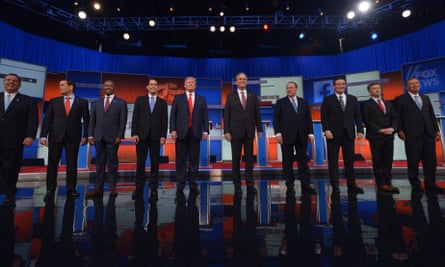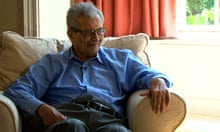Amartya Sen is one of the world’s greatest living economists. Scarred by witnessing at first hand the life-and-death choices confronting so many poor Hindus and Muslims, especially women, during and then after the partition of India, Sen, who was born in Manikganj (now in Bangladesh) in 1933, has insisted throughout his life that no good society can excuse putting anyone in such a position. These inequalities are insupportable whether they are in the developing or the developed world. Economics, along with the mathematics and moral philosophy in which it is embedded, has a duty to address these realities.
Conservatives cleverly argue that society is not an individual thing but a mass of individuals who, because their values and preferences are impossible to aggregate, cannot therefore make choices about what constitutes social good. Sen and others counter this view and have developed a new system of thought rooted in the notion that collective action can proactively promote human welfare. And that there are intellectually robust concepts – despite the efforts of the right to prove that all public action is self-defeating – to improve society and lower fundamental inequalities and workable policies that flow from them.
Sen has garnered prizes and honours from all over the world – in particular the Nobel prize for economics, which he won in 1998. The no less great economist John Maynard Keynes once said that practical men who believe themselves to be quite exempt from any intellectual influence are usually the slaves to some defunct academic scribbler. He could have been referring to Sen, except for the fact that the 83-year-old is very much not defunct. He can draw incredible crowds, as he did at a public lecture in Oxford last week. Described by some as the Mother Teresa of economics, his ideas have done more than those of any other intellectual to alleviate avoidable famines, and to frame the shape of economic development priorities, which have become as much about health, education, law, functioning democratic institutions and women’s equality as the growth of GDP. No country gets rich by oppressing, disfranchising and leaving ignorant half its population, at worst leaving them to die. Hundreds of millions of people have a chance to a life or live a life they have reason to value because of his ideas, without probably knowing the name of the man who devised them.
The heart of his thinking is set out in a book first published in 1970 with the far from funky title of Collective Choice and Social Welfare – but Sen disguises the iron in his intellectual fist by avoiding fanfare. It is this book that he has chosen to revise and update with 11 new chapters. The basic Sen theorems are restated, above all that with careful design it is possible – in theory and in practice – for societies to decide what most people consider important to live a life well. He is famous for his view that it is not enough to address people’s needs and rights, but also their capabilities. Give people the right to vote, of course: but also give them the capacity to read, to think, to have access to freely disseminated ideas and the wherewithal to get to a polling station – and make sure there are enough polling stations so they don’t have to wait hours, or even days, to cast their vote.
Over the 47 years since the book’s publication, as he acknowledges in our interview, his ideas have deepened. One of the core concepts of economics, and in particular conservative philosophers, is that individuals have immutable values and preferences: that not only is economic woman rational in the way she behaves, but she has worked out what she values, ranks and prefers before she interacts with the economic world. One of the great conservative intellectual triumphs – the so-called impossibility theorem – is to show that if this is true and there is no external authority enforcing choices on people, it is algebraically impossible for individuals to arrive at a commonly agreed decision that improves all their welfare. So much for liberal do-gooders! Their desire to meddle, to tax, to spend will end up improving no one’s lot.
Sen contests the entire argument. He shows that by relaxing some of the assumptions behind the conservatives’ proof of impossibility it is quite possible to do good. But perhaps as important, people’s preferences and values are not set in stone. Minds can change. Argument is effective. The quality of information matters. Good collective decision-making becomes even more feasible if it is possible to rally people, who may have started out distrustful and suspicious of some proposition, to the cause. From outlawing the death penalty to accepting the requirement to wear seatbelts, argument has changed individuals’ preferences – and social good has resulted.
Sen is in this respect a quintessential child of the Enlightenment. He believes passionately in the public square, in discussion, in the capacity to change minds when confronted by evidence, in society’s capacity to develop ideas from below and then act to improve the general lot. He, along with Keynes, is one of my most important intellectual influences. Through him I have become even more convinced that institutions such as a checked and balanced government, a free press that efficiently disseminates trusted information, the impartial administration of justice, gender equality and good schools and universities are not only great in themselves – but founding blocks for economic growth and development.
In your writing over the decades, I observe an increasing conviction in the role of argument and discussion in generating values to allow more commonality of purpose. It seems to me that as you’ve got older you’ve become more convinced that values are pliable and capable of improvement through debate and discussion – more emphasised in today’s revised edition of the book than the original in 1970.
The centrality of argument has become much more important for me now because I’ve seen so many things go in a terrible direction because either arguments are not engaged at all, or avoided, or are fouled up by fake news or fake information. For example, Donald Trump’s election was based on a large number of statements which were just not true. An alternative reality was created. People didn’t quite know how to deal with a reality star. Something went wrong there.
When it comes to Britain, if we take Brexit, I’m still amazed how distorted the argument was, with lots of information which was not true, for instance how much money Britain would save which would now all go to the National Health Service. The false arguments were not withdrawn until after the vote. I would have thought that cast some doubt on the legitimacy of the vote itself, even if it had not been just a 2% margin. A lot of doubt. I’ve lived half my life in this country, and I find it very peculiar how the Brits who were opposed to Brexit, how reconciled they now are to it. Now it’s a question of whether it’s a soft Brexit or a hard Brexit. There’s no question, they concede, the British people voted for Brexit.
I think that statement is false.
It’s not adequate to give a 52-48% vote on the basis of very defective argument and then say that the British are convinced that they are not European and they don’t want to be in the European Union. And on top offer very little follow-up at a time when people said that there should be a follow-up if there [was] a close margin. The present prime minister was a Remainer. She has jumped with astonishing ease to the other camp.
It seems to indicate a kind of frivolity about what national preference really means and that frivolity is pretty painful to me. My identity has a very strong British element in it having been here for so long, but also in my college days cutting my intellectual teeth here.
The frivolity of the interpretation of Brexit is worrying me, the lack of the understanding of the complexity involved. It’s not just a matter of European Union, though I believe it would be very hard to maintain access to a European market, and true European contact with the rest of the world: those difficult things are still to come. But underlying that there is an issue of how Britain feels about being a part of a European civilisation – our life is dominated by the European Enlightenment.

How would you have designed the referendum so it did not produce what you believe to be a frivolous outcome?
I don’t think a referendum is the way of dealing with it. Referendums are a bit like public opinion polls – you do them, sometimes they’re very wrong. I think the best person to read on that is John Stuart Mill, namely his book Considerations on Representative Government. Why is representative government rather than decision by one-shot referendum the right way of dealing with issues? These are complex questions and you need a whole lot of engagement. It isn’t that you have elections once in four or five years and then democracy goes away and you already decided everything in the election... there is a continuing need to think and debate.
For example, austerity wasn’t a part of proposed policy when Cameron won the election but it came in. Now, in this case I believe he made a mistake in moving in that direction, but he didn’t make the mistake on grounds that it wasn’t in the party platform. A representative government gives you the freedom to think about taking into account everything. In this case I believe he made a mistake. But on the other hand he didn’t make a mistake in thinking that since austerity was not OK’d by the voters, it could not be allowed to be thought of. You are in a parliament, you have to think about it, these are important issues to consider.
Referenda are a good way of catching the attention of people, but that has to be followed up by really serious engagement in arguments in parliament and newspapers. There’s also the issue of bias of the media; there are certain types of argument that don’t get the kind of attention that they should get. But if we had had a vigorous public debate inside and outside parliament and with each other and then arrived at some kind of a conclusion in parliament, then that would be something which I would regard to be not frivolous. But to do it out of a one-shot sudden decision?
One of the difficulties, apart from whether it’s appropriate to have a referendum in a representative democracy, was that there was no obligation on the Leave people to actually set out what they thought Leave meant.
Yes. So it wasn’t quite clear what it was that got 52% of the vote. A vague decision to leave the European Union conveyed only one thing – that we don’t want to be with Europe. And that, I believe, is almost wholly negative as a thought in the world in which we live. We need the European voice in the world and a European voice in the world is much stronger if Britain is part of that story. There are all kinds of atrocities going on here, there, everywhere. There’s also many ways in which Britain is very dependent on Europe.
I think Europe has made a lot of mistakes, particularly on economic policy, and austerity is one of them. I personally believe the euro was a big mistake too. You may not agree on that but I do think that took away one of the instruments of adjustment that the government has. Also, it didn’t take into account the long-run problem [that] with productivity in one area like Germany going much faster than another area like Portugal or Greece, then the euro becomes increasingly a burden. None of this was thought through. So I think they’ve made a mistake, but of course the United Nations has made a huge number of mistakes too. The question is whether you decide, therefore, since it made mistakes, to give it up and simply say there’s no need for the institution.
There was a reason why the European Union was wanted, just as there was a reason why the United Nations was wanted. Those reasons have not gone away merely because some bad decisions have been taken.
You’re also critical of the Republican primary process that threw up Donald Trump.
For 17 primaries he did not have a majority of the voting Republican voters. By that time there had been already many primaries in which several of the other candidates in a one-to-one contest with Trump would have defeated him. If you had put every candidate against every other, Trump would have been defeated by two or three of the people in the early primaries. By the time the 18th came, people were pretty fed up with the system and Trump was establishing his lead and he has shown certain ability to turn his quite considerable political skills to good effect.
To get the best social choice you don’t count only first preferences.
Your point being that second and third preferences have validity alongside first preferences and if you’re going to try to get to an outcome that reflects the best indicator of opinion in aggregate that it can be, it needs to take into account second and third preferences, and had that happened we wouldn’t have had Trump?
To put it another way, you have to take in, somehow, the unattractiveness of the last as well as the attractiveness of the first candidate.
If you believe as you do that information and discussion about information is fundamental and that can only take place in the public square, it then becomes fundamental how the public square is constructed and who is the custodian of the information that flows into the public square. So how do you do something that does not offend the freedom of the press?
Freedom of press is extremely important. But it depends on ownership, it depends on advertising, it depends on all kinds of things. It depends on readership also.
But isn’t the British press free?
I am not saying the British press is not free. But there is such a thing as the press doing its job efficiently subject to it being free. The idea that there’s only one model of freedom of the press whereby ownership is divided the way it is, that would be a mistake. Freedom of press is compatible with different styles of ownership. It would be compatible with more of an obligation to fact-check. Which some people do.
There are plenty of ways in which the press could be made more efficient, more conducive to public discussions without becoming unfree. So my point is not that press freedom requires this change. My point is that you can make the press more efficient and more an adequate vehicle for public discussion. Without becoming unfree.
Who should do that “making”?
We have to distinguish two different questions. We’re not discussing what guarantees the freedom of the press. The freedom of the press is basically non-interference. Am I opposed to anyone who had the money to start a press? I’m not. Because that’s where I would be against a free press.
What I’m saying is that all of us have to examine how we could communicate better with each other. It’s not that there is a subaltern-major who is going to be in charge of that and periodically goes around and tells the press what to do. It has to be like public discussion in general. It has to be something, and these people have to take an interest. Not only in expressing their own view but making sure that they actually give an opportunity to listen to people who may be excluded by the papers for one reason or another.
Of course, but I’m asking who should make a free press more efficient…
We have to make it, we have to. It’s like saying who makes us not litter in the street. Or who makes us follow certain rules of good behaviour. Not to insult disabled people on the street…
But is it a public authority that stops the spitting in the street or is it an internal voice in your head?
Not in your head. I think you may be in danger of underestimating the role that public discussion plays. Think of the dynamics of it. There is some public discussion going on right now and there can be more. I’m saying it could be more.
And that doesn’t really require any authority to do it. I’m completely against authoritarianism. If there’s one thing the Soviet Union has taught us it is that unless you actually look at political organisation more seriously you cannot get the social organisation right. And the political organisation includes that non-interference in the press. And that’s what makes the press free. And I celebrate that.
The common currency at the moment is that liberalism is over. It’s a post-liberal order. And that folk like you and me are in retreat. We’ve lost the argument and we must reconcile ourselves to that…
It’s not over. We are made of a complexity of values in which liberal values play a very big part. And there’s nothing that’s happened which would make that go away. You get a lot of kudos by attacking liberalism at this moment certainly. But I don’t see that to be a perpetual decline or indeed a big present decline.







Comments (…)
Sign in or create your Guardian account to join the discussion